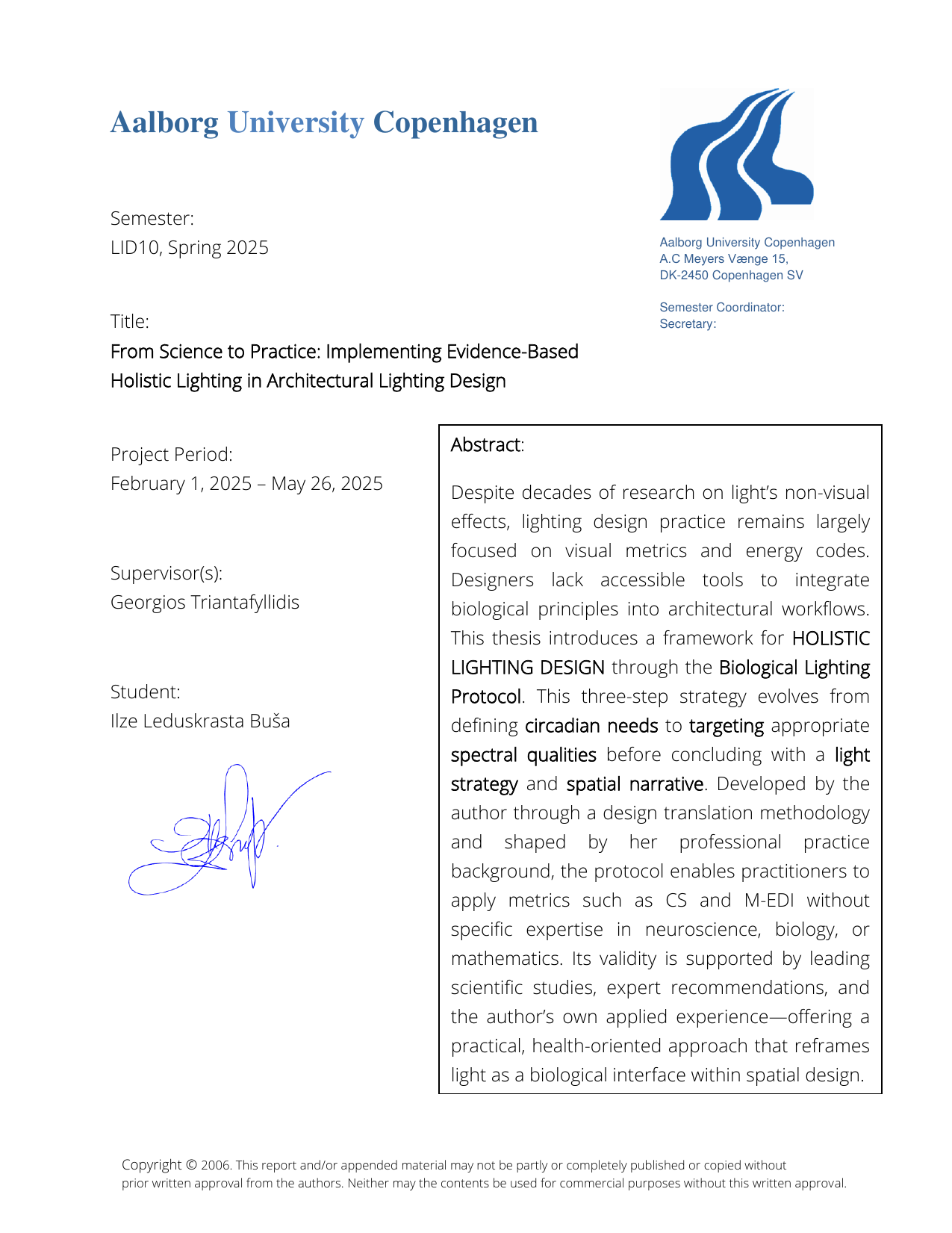
From Science to Practice: Implementing Evidence-Based Holistic Lighting in Architectural Lighting Design
Author
Term
4. Term
Education
Publication year
2025
Submitted on
2025-05-25
Pages
51
Abstract
Despite decades of research on light’s non-visual effects, lighting design practice remains largely focused on visual metrics and energy codes. Designers lack accessible tools to integrate biological principles into architectural workflows. This thesis introduces a framework for HOLISTIC LIGHTING DESIGN through the Biological Lighting Protocol. This three-step strategy evolves from defining circadian needs to targeting appropriate spectral qualities before concluding with a light strategy and spatial narrative. Developed by the author through a design translation methodology and shaped by her professional practice background, the protocol enables practitioners to apply metrics such as CS and M-EDI without specific expertise in neuroscience, biology, or mathematics. Its validity is supported by leading scientific studies, expert recommendations, and the author’s own applied experience—offering a practical, health-oriented approach that reframes light as a biological interface within spatial design.
Keywords
Holistic Lighting Design ; Biological Lighting Protocol ; From Science to Practice ; Human-Centered Lighting ; Evidence-Based Lighting ; Light as a Biological Interface ; Lighting that Supports Life ; Light Storytelling ; Circadian Rhythm ; Melatonin & Cortisol ; Spectral Sensitivity ; Non-visual Effects of Light ; Circadian Stimulus (CS) ; Melanopic Equivalent Daylight Illuminance (M-EDI) ; Spectral Power Distribution (SPD) ; Temporal Light Modulation / Flicker ; Health-Oriented Lighting ; Lighting for Well-being
Documents
